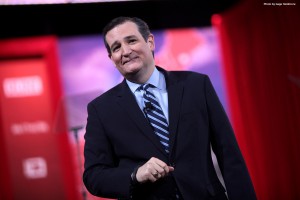Ted Cruz Calls for Religious Freedom for Atheists in RNC Speech
 Photo by Gage Skidmore
Photo by Gage Skidmore Yesterday, in his speech at the Republican National Convention in Cleveland, Ohio, US Senator Ted Cruz (R-TX) included atheists specifically in his call for religious freedom:
Freedom means religious freedom, whether you are Christian or Jew, Muslim or atheist [emphasis added]. Gay or straight, the Bill of Rights protects the rights of all of us to live according to our conscience.
Cruz’s recognition of atheists appears contrary to previously disparaging comments he’s made about secular Americans and about church/state separation. Last year the Center for Freethought Equality criticized Cruz for claiming that anyone who doesn’t pray is not qualified to be president of the United States. As solicitor general of Texas, Cruz claimed that Ten Commandments monuments on government property were constitutional and that the phrase “under God” should remain in the Pledge of Allegiance.
Yet Cruz’s most recent statement mentioning religious freedom for atheists demonstrates the growing political influence of the secular movement, as nonreligious Americans become a larger percentage of the US population. A recent Pew Research Center survey found that Americans who do not identify with any religious affiliation, sometimes known as the “Nones,” make up one-fifth of all registered voters, on par with the number of white, evangelical Protestants who are registered voters. According to Pew, the “Nones” also make up nearly 23 percent of the United States’ population overall.
As the number of secular Americans grows, politicians who previously focused almost solely on appealing to religious voters will also need to reach out to nonreligious Americans, including atheists and humanists. Atheists and humanists do have a right to religious freedom and a right to freedom from religious intrusion by the government. If Senator Cruz can acknowledge those freedoms, then perhaps other politicians will also give more attention to the rights of atheists, humanists, and other nonreligious Americans.
